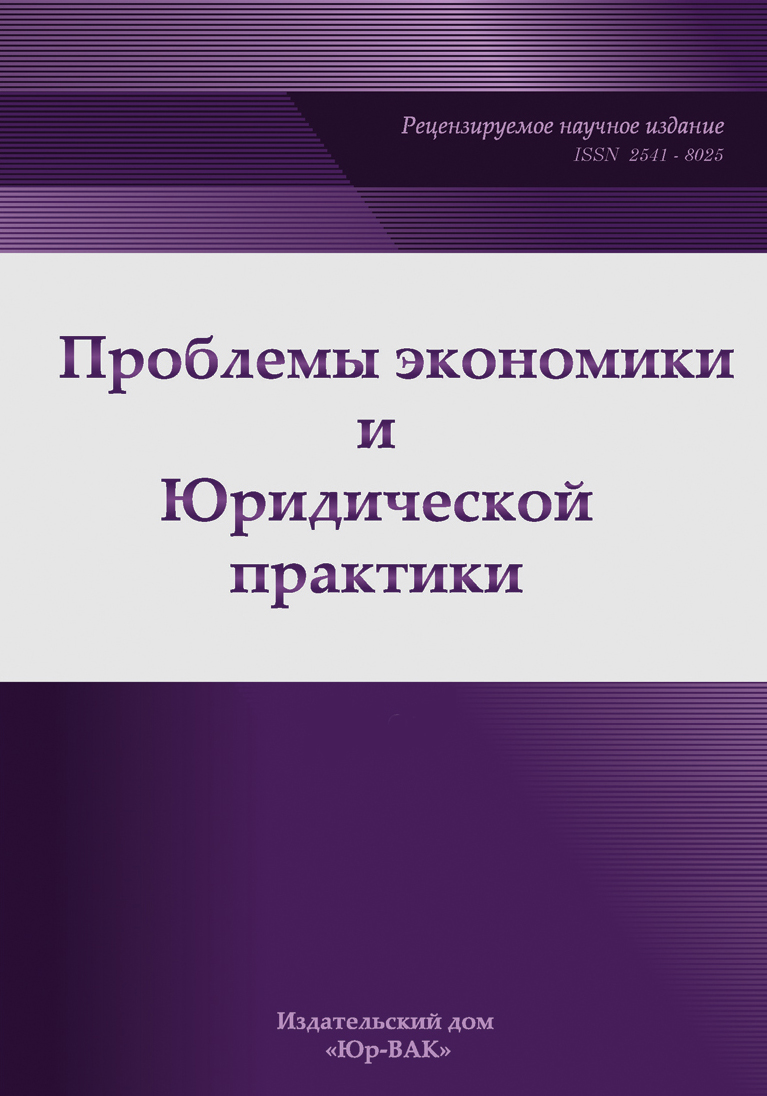Economic Policy of the Metropolis in the Conditions of Crises: Experience of a Retrospective Analysis
- Authors: Purtov K.S.1
-
Affiliations:
- Moscow State University of Management
- Issue: Vol 18, No 6 (2022)
- Pages: 275-279
- Section: Articles
- URL: https://journals.eco-vector.com/2541-8025/article/view/545934
- ID: 545934
Cite item
Abstract
The relevance of the article is determined by the importance of understanding the processes of adaptation of the economies of megacities to the conditions of economic crises of various origins. The article provides the author's analysis of the economy and economic policy of Moscow as complex and multidimensional phenomena that require constant adaptation, taking into account the principles of self-organization and moderate and targeted state influence with the entire arsenal of available means of state regulation. The general analysis presented in the article showed that Russia and Moscow, in particular, experienced the greatest decline in economic indicators in cases of global economic challenges: the global economic crisis of 2008, the pandemic of 2020-2021. A more local (referring only to Russia) challenge associated with the introduction of sanctions restrictions did not have such a significant impact on the economic performance of the metropolis. The author comes to a reasonable conclusion that the role of Moscow as an international metropolis, which is maximally included as one of the centers in the global financial and commodity flows, causes a more significant negative effect during periods of global crisis, as well as the need to build a more flexible and adaptive economic policy. taking into account not only the existing «points of growth», but also the «points of sustainability».
Keywords
About the authors
Kirill S. Purtov
Moscow State University of Management
Email: borak3@yandex.ru
Postgraduate Student of the Department of Financial Management and Financial Law Moscow, Russian Federation
References
- Bulgakov S.I. Megacities are the locomotives of the innovative development of the national economy // South-Russian Forum: economics, sociology, political science, socio-economic geography.-2014.-№ 1 (8).-P. 43.
- Klepach A. N. Lessons of modern crises for the economic development of Russia // Journal of the New Economic Association. 2015. № 2 (26). pp. 210-218.
- Kudrin A. Global financial crisis and its impact on Russia // Questions of Economics. 2009. №1. pp. 9-27.
- Lyakin A.N. Three crises according to one scenario // Bulletin of St. Petersburg State University. Economy. 2018. № 34. 1st edition. pp. 4-25.
- Mironov V.V. The impact of the economic crisis on the real sector of the Russian economy // Journal of the New Economic Association. 2009. № 3-4. pp. 216-225.
- Popkov S.Yu., Safonov A.L., Yastrebova E.V. Living Economics // Safonov A.L., Popkov S.Yu., Slobodchikov I.M., Smirnov V.M., Yastrebova E.V. // Business in law. Economic and legal journal. 2016. № 3. pp. 7-23.
- Popkov S.Yu., Safonov A.L., Smirnov V.M. Strategic planning in the system of federal executive authorities in the Russian Federation. Monograph // Popkov S.Yu., Safonov A.L., Smirnov V.M. Moscow, 2019. (2nd edition). 172 p.
- Nekipelov A. Crisis in Russia: the logic of development and options for economic policy // Society and Economics. 2009.№ 8-9. pp. 5-21.
- Yanitsky O.N. Metabolic concept of the city // Sociological science and social practice. 2013. № 1. pp. 16-32.
- Shirov A.A., Tolkachev S.A., Shmanev S.V. et al. Economic policy. // Alpidovskaya M.L., Avdiyskiy V.I., Govtvan O.D., Edinak E.A., Dementiev V.V., Dontsova O.I., Ilminskaya S.A., Ilyukhina I.B., Kolpakov A.Yu., Matveev V.V., Novitskaya A.A., Polzikov D.A., Potapenko V.V., Smirnov V.M., Tolkachev S.A., Shmanev S.V., Shirov A.A., Shapkin I.N. Textbook. Moscow, 2023. 582 p.
Supplementary files









